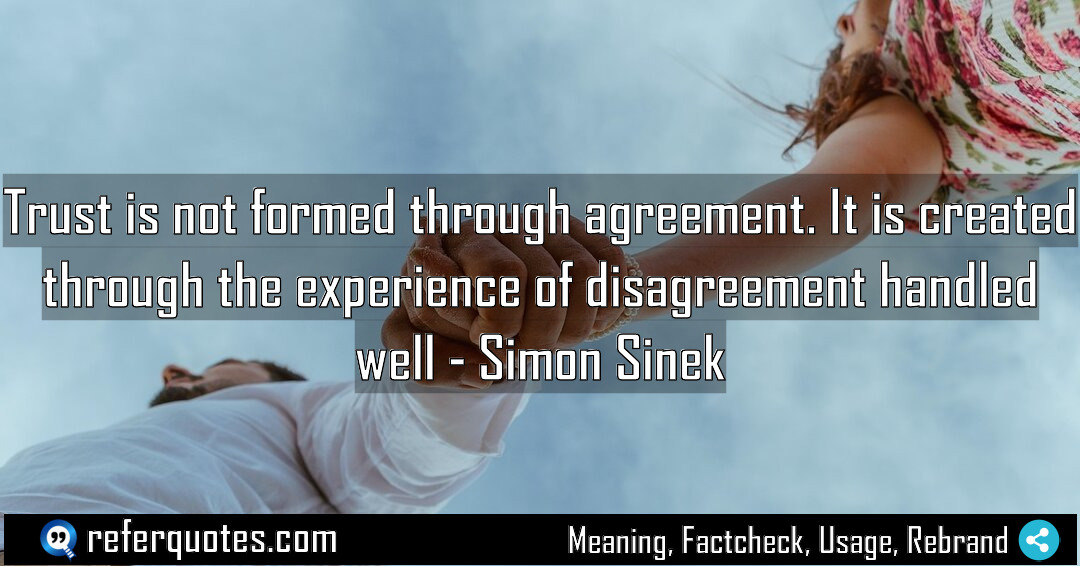Trust is not formed through agreement. It’s created when you have a disagreement and handle it well. This flips the whole idea of teamwork on its head, doesn’t it? It means real trust is forged in the fire of conflict, not in the comfort of consensus.
Share Image Quote:Table of Contents
Meaning
The core message here is that true trust isn’t about everyone saying “yes.” It’s about what happens when someone says “no,” or “I disagree,” and the team navigates that conflict with respect and a shared goal.
Explanation
Look, anyone can get along when things are easy. The real test of a team’s fabric is when there’s friction. When you can challenge an idea, have a heated debate, and walk out of the room feeling *more* connected to your colleagues, that’s when you know you’ve built something unbreakable. It proves the relationship is stronger than any single disagreement. That’s the foundation. It’s not about avoiding conflict; it’s about leveraging it.
Quote Summary
| Context | Attributes |
|---|---|
| Original Language | English (3668) |
| Category | Relationship (329) |
| Topics | communication (196), conflict (23), trust (147) |
| Literary Style | analytical (121), insightful (43) |
| Emotion / Mood | calm (491), realistic (354) |
| Overall Quote Score | 78 (178) |
Origin & Factcheck
This is straight from Simon Sinek’s 2014 book, “Leaders Eat Last,” which really took his “Start With Why” philosophy into the realm of team dynamics and leadership. You’ll sometimes see it misattributed to other leadership gurus, but this is pure Sinek, focusing on creating “Circles of Safety” within organizations.
Attribution Summary
| Context | Attributes |
|---|---|
| Author | Simon Sinek (207) |
| Source Type | Book (4032) |
| Source/Book Name | Leaders Eat Last: Why Some Teams Pull Together and Others Don’t (34) |
| Origin Timeperiod | 21st Century (1892) |
| Original Language | English (3668) |
| Authenticity | Verified (4032) |
Author Bio
Simon Sinek champions a leadership philosophy rooted in purpose, trust, and service. He started in advertising, then founded Sinek Partners and gained global attention with his TED Talk on the Golden Circle. He advises companies and the military, writes bestselling books, and hosts the podcast “A Bit of Optimism.” The Simon Sinek book list features Start With Why, Leaders Eat Last, Together Is Better, Find Your Why, and The Infinite Game. He speaks worldwide about building strong cultures, empowering people, and leading for the long term.
| Official Website | Facebook | X| Instagram | YouTube
Where is this quotation located?
| Quotation | Trust is not formed through agreement. It is created through the experience of disagreement handled well |
| Book Details | Publication Year/Date: 2014; ISBN/Unique Identifier: 978-1591848011; Last edition: Portfolio/Penguin, 2014; Number of pages: 368 |
| Where is it? | Chapter 7: The Big C; Approximate page from 2014 edition |
